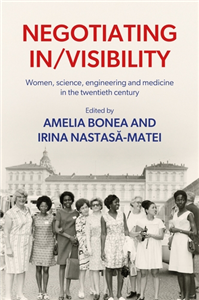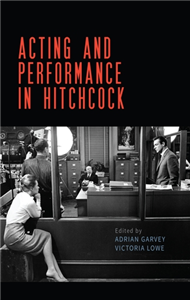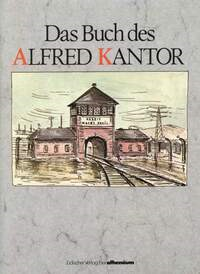Your Search Results
-
Princeton University Press
Founded in 1905, Princeton University Press is a nonprofit publisher with close connections to Princeton University. The Press brings influential voices and ideas to the world stage through their academic scholarship, advancing the frontiers of scholarly knowledge and promoting the human conversation. PUP have offices in Princeton in the US, Oxford in the UK where the rights team is based, and in Beijing. We all work together to make Princeton a truly global publisher. We publish peer-reviewed books across the humanities, social sciences, and sciences.
View Rights Portal
-
Promoted ContentDecember 1982
Außenhandelseffekte in linearen Wachstumsmodellen.
Eine Analyse der Beziehungen zwischen Wachstum, Verteilung und Außenhandel bei internationaler Kapitalmobilität.
by Nobel, Klaus
-
Promoted ContentScience & MathematicsAugust 2025
Negotiating in/visibility
Women, science, engineering and medicine in the twentieth century
by Amelia Bonea, Irina Nastasa-Matei
This volume brings together scholars from different disciplinary backgrounds to discuss how women contributed to the making, pedagogy, institutionalisation and communication of scientific knowledge in the twentieth century, and to reflect on the theoretical and methodological challenges of documenting such hidden contributions. Featuring examples from China, former Czechoslovakia, Greece, Hungary, India, Japan, Romania, the United Kingdom and the United States, the contributors discuss women's engagement with science across different institutional and non-institutional sites, ranging from the laboratory and the school to the clinic, the home and the media. The volume moves beyond the professional scientist model to enlarge our understanding of women's participation in twentieth-century science and document the complex combination of factors that rendered such contributions (in)visible to contemporaries and future generations.
-
 Trusted Partner
Trusted Partner
-
 Trusted Partner
September 1997
Trusted Partner
September 1997Alfred Nobel
Idealist zwischen Wissenschaft und Wirtschaft
by Kenne Fant, Wolfgang Butt
-
 Trusted Partner
Teaching, Language & ReferenceFebruary 2003
Trusted Partner
Teaching, Language & ReferenceFebruary 2003Claude Simon
Adventures in Words
by Alastair B. Duncan
Introducing novels by the Nobel Prize for Literature author, Claude Simon, this text gives emphasis to peaks in his literary achievement: "The Flanders Road" (1960), "The Georgics" (1981) and "The Acacia" (1989). Alastair Duncan traces the development and recurrence of major themes, such as war, time and memory, and the constantly renewed inventiveness of Simon's manner. Duncan illustrates and comments on the various critical approaches which have been made to the novels over the years, from phenomenological interpretations, through structuralism to the autobiographical and psychobiographical approaches of the 1980s and 1990s. The text includes a chapter on Simon's most recent works ("Le Jardin des Plantes" 1997 and "Le Tramway" 2001).
-
 Trusted Partner
September 2007
Trusted Partner
September 2007Gruppenbild mit Dame
Roman
by Böll, Heinrich
Cited by the Nobel Prize committee as the “crown” of Heinrich Böll’s work, the gripping story of Group Portrait with Lady unspools like a suspenseful documentary. Via a series of tense interviews, an unnamed narrator uncovers the story – past and present – of one of Böll’s most intriguing characters, the enigmatic Leni Pfeiffer, a struggling war widow. At the center of her struggle is her effort to prevent the demolition of her Cologne apartment building, a fight in which she is joined by a motley group of neighbours. Along with her illegitimate son, Lev, she becomes the nexus of a countercultural group rebelling against Germany’s dehumanizing past under the Nazis... and what looks to be an equally dehumanizing future under capitalism.
-
 Trusted Partner
2020
Trusted Partner
2020Amino Acids in Prevention and Treatment
A selection for clinical practice
by Uwe Gröber and Prof. Dr. Klaus Kisters
In contrast to vitamins and minerals, for a long time, science paid only scant attention to amino acids, but this all changed when scientists Robert F. Furchgott, Louis J. Ignarro and Ferid Murad received the Nobel Prize for Medicine in 1998 for their work on amino acids. Pharmacist Uwe Gröber, Head of the Academy for Micronutrient Medicine in Essen and Prof. Klaus Kisters, MD, Head of the Department of Medicine at St Anna Hospital in Herne – both experts in micronutrient medicine – have reviewed the subject and explain clearly and in practical terms: ■ The importance of individual amino acids for our health ■ How they are optimally used in combination with vitamins, minerals and trace elements ■ Which diseases can be positively influenced in this way. ■ Effects on colds and influenza, cold sores, diabetes, cardiovascular diseases, ADHD as well as stress and burnout are examined in more detail. A further chapter is devoted to amino acids and their use in sportsmen and -women.
-
 Trusted Partner
Humanities & Social SciencesMarch 2012
Trusted Partner
Humanities & Social SciencesMarch 2012John Hume and the revision of Irish nationalism
by P. J. McLoughlin
The book, available at last in paperback, explores the politics of the most important Irish nationalist leader of his generation, and one of the most influential figures of twentieth-century Ireland: the Nobel Peace Prize winner, John Hume. Given his central role in the reformulation of Irish nationalist ideology, and the vital part which he played in drawing violent republicanism into democratic politics, the book shows Hume to be one of the chief architects of the Northern Ireland peace process, and a key figure in the making of the 1998 Good Friday Agreement. At the same time, it considers Hume's failure in what he stated to be his foremost political objective: the conciliation of the two communities in Northern Ireland. The book is essential reading for specialists on Irish history and politics, but will also be of interest to academics and practitioners working in other regions of political and ethnic conflict. In addition, it will appeal to readers seeking to understand the crucial role played by Hume in modernising Irish nationalist thinking, and bringing peace to Northern Ireland. ;
-
 Trusted Partner
The ArtsMarch 2026
Trusted Partner
The ArtsMarch 2026Acting and performance in Hitchcock
by Adrian Garvey, Victoria Lowe
Hitchcock's professed disdain for actors is belied by the extraordinary range and depth of performances featured in his films. It might even be argued that many stars gave their richest and most complex performances in his work. Hitchcock's films are also imbued with the theme of performance, as when his fugitive men and errant women assume fragile new identities and move between roles. Actors and other performers also often feature as characters. However, the exhaustive academic literature on Hitchcock has to date produced surprisingly little work about acting and performance in his films. The collection includes contributions from a range of leading scholars on Hitchcock, performance, stardom, and British Cinema, including Charles Barr, David Greven, Mark Glancy, Lucy Bolton, Lawrence Napper and Michael Williams, and an interview with leading composers/accompanists Neil Brand and Stephen Horne on scoring performance in Silent Hitchcock.
-
 Trusted Partner
The ArtsAugust 2016
Trusted Partner
The ArtsAugust 2016The Right Formula
The story of the National Graphene Institute
by David Taylor
In the corner of a Manchester laboratory in 2004, two scientists stumbled on a major discovery while pulling pieces of Sellotape apart - graphene. This is the story of those scientists, Professors Andre Geim and Kostya Novosolev, their eureka moment, subsequent Nobel Prizes and investigation into the wonder material's potential uses. But it is also the tale of the building they created with architects Jestico + Whiles and others to push graphene's potential ever further. This is the story of the National Graphene Institute.
-
 Trusted Partner
Trusted Partner
-
 Trusted Partner
2019
Trusted Partner
2019The Nobel Laureate Who Met a Polite Raccoon in the Woods
When the brain goes mad: 30 rare and unusual mental syndromes
by Monika Niehaus
The human brain is a highly complex and highly functional structure consisting of almost 90 billion nerve cells. But it can go out of sync, due to genetic factors, hormonal effects, trauma or other causes. In extreme cases, our control centre then creates bizarre delusions – brilliant narratives that are completely convincing to the person concerned. In her second book on such phenomena, Monika Niehaus has compiled 30 rare psychological disorders – from a conviction to have been abducted by aliens, to being sexually attracted to criminals, to the hyperthymestical syndrome where people can remember every detail of their past life. Narrated in an interesting, humorous and sensitive way, the author relates a variety of cases, some of them famous, others less so, while introducing us to the history of art and literature and presenting scientific explanations. This fascinating book shows the genius that resides in our brain – and how madness can often be explained.
-
 Trusted Partner
September 2019
Trusted Partner
September 2019Reineke Fuchs
by Reinhard Michl, Matthias Reiner
Pünktlich zu Pfingsten lässt König Nobel alle Tiere wie jedes Jahr zum Hoftag rufen. Nur einer erscheint nicht: Reineke Fuchs. Denn er wird zahlloser Verbrechen beschuldigt: »Wenn Reineke tot wäre, könnten wir alle in Frieden leben.« Schließlich stellt er sich dem Gerichtsverfahren, doch am Ende siegt nicht die Gerechtigkeit, sondern der trickreichste und skrupelloseste Protagonist, der begabteste Lügner .... Reineke Fuchs wird Kanzler, sein Wort »fortan Gesetz«. Das parabelhafte Epos, erstmals 1498 in deutscher Sprache erschienen, wurde Volksbuch, Klassiker und Kinderbuch, ist seither in unzähligen Auflagen und Ausgaben erschienen. Für die Ausgabe der Insel-Bücherei wird der Urtext nacherzählt, Reinhard Michl hat ihn mit seinen unverwechselbaren Bildern illustriert. »Reinecke Fuchs. Vor Jahrhunderten hätte ein Dichter dies gesungen? Wie ist das möglich? Der Stoff ist ja von gestern und heut!« Johann Wolfgang Goethe
-
 Trusted Partner
March 2021
Trusted Partner
March 2021Robert Koch's Ape
The great mistake of the famous physician
by Michael Lichtwarck-Aschoff
During the corona crisis, Robert Koch‘s name has been on everyone‘s lips: Robert Koch is regarded as one of the shining lights in German medical history. However, the expedition that he undertakes in 1906 to the “protected area” of German East Africa even the institute named after him describes as the darkest chapter in Koch‘s history. Lichtwarck-Aschoff‘s oppressive book tells how the Nobel laureate conducted medical tests on people suffering from the sleeping sickness transmitted by the tsetse fly, and recommended the internment of sick people in camps. The aim was to preserve the labour power of the healthy colonised – even if that were at the cost of the infected suffering damage to their body and soul or even dying.
-
 Trusted Partner
March 2006
Trusted Partner
March 2006Thomas Bernhard und Frankfurt
Der Autor und sein Verleger
by Martin Huber
»Wenn Shakespeare der größte Dichter und Mietti der größte Schauspieler, dann ist Unseld der größte Verleger.« »Thomas Bernhard und Frankfurt«, erzählt vom ersten Kontakt des Autors zum Verlag Suhrkamp und dessen Beziehung zum Verleger Siegfried Unseld.
-
 Trusted Partner
Trusted Partner
-
 Trusted Partner
July 1987
Trusted Partner
July 1987Das Buch des Alfred Kantor
by Alfred Kantor, Alfred Kantor, Johannes Eidlitz, Friedrich Heer
Theresienstadt - Auschwitz - Schwarzheide: Das sind die Leidensstationen des jungen tschechischen Künstlers Alfred Kantor in den Jahren 1941-1945. Im Juli 1945, zehn Wochen nach der Befreiung aus dreieinhalb Jahre dauernder Haft in Lagern des NS-Regimes, kam der damals zweiundzwanzigjährige Kantor nach Deggendorf in ein Lager für »Displaced Persons«. Dort schuf er in etwa zwei Monaten die in diesem Band vorgelegten 127 mit Wasserfarben kolorierten Zeichnungen, die er in einem von einem Buchbinder eigens angefertigten Buch mit leeren Blättern eintrug.
-
 Trusted Partner
January 2011
Trusted Partner
January 2011Aus Opposition gegen mich selbst
Ein Lesebuch
by Thomas Bernhard, Raimund Fellinger
In dem Interview zu seinem 50. Geburtstag erklärte Thomas Bernhard: »Negativ ist alles, gibt nicht Positives.« Später konstatierte er lakonisch: »Es ist eh’ alles positiv.« Ist also Thomas Bernhard der große Unfaßbare, der im gleichen Atemzug Gegenteiliges behauptet? Ist sein Werk vielleicht finster und sein Autor ein fröhlicher Clown? Ist er bloß ein opportunistischer Übertreibungskünstler bei allem und jedem? Oder ist er doch der schärfste Kritiker der politischen Verhältnisse im allgemeinen und des »katholisch-nationalsozialistischen Österreich« im besonderen? Der vorliegende Band versammelt kurze und längere Texte von Thomas Bernhard, er berücksichtigt alle Gattungen – vom Roman bis zum einzeiligen Leserbrief – und präsentiert das Bernhardsche Werk als einen Kontinent, auf dem es viele überraschende Entdeckungen zu machen gibt. Er bietet somit Bernhard-Anfängern wie Fortgeschrittenen, ja sogar den Spezialisten überraschende und ungeahnte neue Literatur- und Geisteslandschaften.
-
 Trusted Partner
May 2013
Trusted Partner
May 2013Argumente eines Winterspaziergängers
Und ein Fragment zu »Frost«: Leichtlebig. Mit dem Faksimile des Leichtlebig-Typoskripts
by Thomas Bernhard
Im Mai 1963 erschien in einer Auflage von 2000 Exemplaren Thomas Bernhards Roman »Frost« im Insel Verlag. Gleich nach Erscheinen erregte der Roman größte Aufmerksamkeit: Noch nie hatten die Rezensenten und Leser derartig aufwühlende Sätze über einen froststarren, finsteren Ort namens Weng im höchsten Österreich gelesen. Der Maler Strauch beschimpfte an dieser Stelle Gott und die Welt, erkannte um sich herum nur Kranke, Kretins und Todgeweihte. (Für den Roman erhielt Bernhard nicht nur den Bremer Literaturpreis, sondern auch den Österreichischen Staatspreis für Literatur, was die Gemeinde Weng zu heftigen Protesten beim Bundesminister wegen Verleumdung einer ganzen Gemeinde veranlasste.) Um das Irritationspotenzial dieses Romans einzugrenzen, verlegten die Interpreten sich schon bald darauf, die sinnlosen, widersinnigen Wortkaskaden des Malers als prototypisch für einen pathologischen Charakter anzusehen, der seinerseits prototypisch den Zerfall unserer Gegenwart vorlebt. Aus den vielen Vorstufen zu »Frost« präsentiert dieser Band aus Anlass des 50-jährigen Erscheinens eine frühe Fassung, in der ein Eisenbahner mit dem Namen Leichtlebig bei einer Kur in Schwarzach (bei Goldegg-St.Veit) einem Lehrer begegnet und mit ihm ausgedehnte Spaziergänge unternimmt. Die zweite der für diesen Band ausgewählten Vorstufen datiert aus der Zeit unmittelbar vor der Fertigstellung des Romans: Die »Argumente eines Winterspaziergängers« gab Thomas Bernhard seinem Freund Gerhard Fritsch, damit dieser sie in der von ihm herausgegebenen Zeitschrift »Wort in der Zeit« publizierte: Bernhard hat für diese Vorabveröffentlichung des Romans signifikante Passagen aus diesem zusammengestellt und sie zu einem 19-seitigen Manuskript zusammengefügt – eine Veröffentlichung kam allerdings nicht zustande.
-
 Trusted Partner
January 2006
Trusted Partner
January 2006Eine Begegnung
Gespräche mit Krista Fleischmann
by Thomas Bernhard, Krista Fleischmann, Krista Fleischmann
Thomas Bernhard hat sich selten auf Interviews vor laufender Kamera eingelassen. Die Fernsehjournalistin Krista Fleischmann allerdings schätzte er als einfühlsame Gesprächspartnerin, mit der zusammen zwei – mittlerweile legendäre – Filminterviews entstanden: die Monologe auf Mallorca (1981) und der in Madrid gedrehte Film Die Ursache bin ich selbst (1986). Ein Interview zu Bernhards 1984 erschienenem Roman Holzfällen rundet diesen Band ab, der über die Filmfassungen hinaus auch die nicht gesendeten Texte enthält. Bernhard selbst fand Krista Fleischmanns Arbeit »ganz großartig ... Am liebsten würde ich sofort wieder etwas mit Ihnen machen, meinen Nachruf vielleicht.«Nachdenklich und charmant, unterhaltsam, ironisch und maßlos übertreibend – Thomas Bernhard zeigt sich in diesem Band für Einsteiger wie für Kenner von seiner besten, von einer höchst vergnüglichen Seite.
































